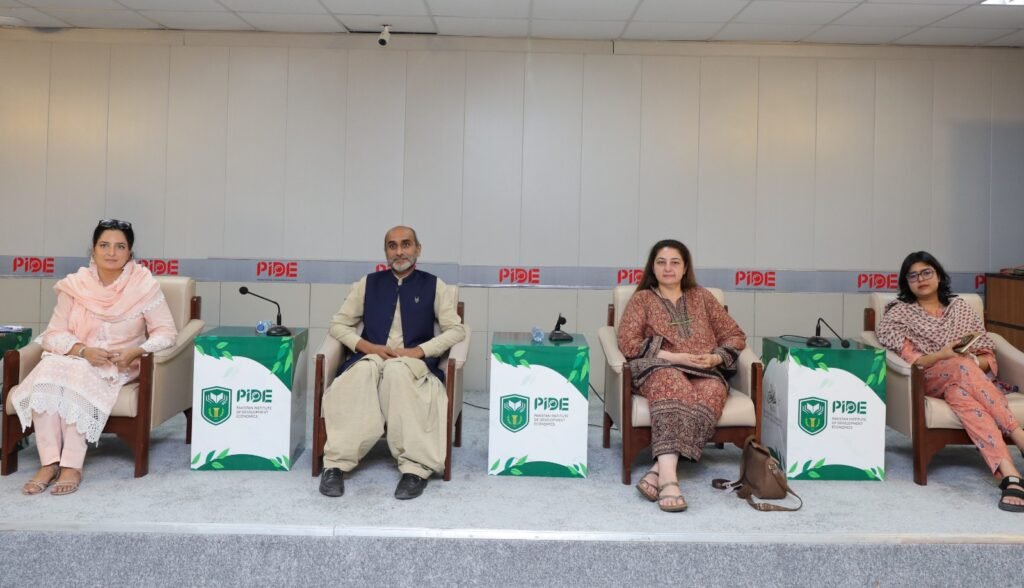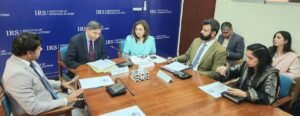
PIDE Calls for Gender-Sensitive Disaster Response in Flood-Hit
Islamabad : Pakistan Institute of Development Economics (PIDE) hosted a seminar titled “Understanding Gendered Vulnerabilities in Flood-Affected Areas of Pakistan,” highlighting how disasters exacerbate existing social inequalities, particularly for women, minorities, and marginalized groups. The session, moderated by Dr. Rabia Manzoor, Deputy Chief (Policy) PIDE brought together experts and practitioners including Nilofer Afridi Qazi (social worker and disaster management specialist), Raza Narejo (Acting Country Director, Islamic Relief Pakistan), and Jayaa Jaggi (Minority Women Forum).
According to the press release issued from the PIDE, Nilofer Afridi Qazi emphasized that disasters do not create vulnerabilities but amplify pre-existing ones such as poverty, illiteracy, and lack of resources. Drawing on her fieldwork in Khyber Pakhtunkhwa and Balochistan, she shared striking cases where women could not be rescued during floods because cultural taboos prevented male rescuers from assisting them. Similarly, women in purdah were often left out of aid distribution as they could not interact with male relief workers. She also highlighted neglected issues like menstrual health, pointing to her initiative on locally made reusable sanitary pads as a sustainable solution for displaced women.
Speaking from Islamic Relief’s decades-long humanitarian engagement, Raza Narejo stressed that women are systematically excluded during relief distribution. In conservative areas, aid was often handed only to men, leaving women without access to essentials such as clothing, hygiene supplies, and maternal health products. Pregnant and lactating women were particularly neglected. He underscored the urgent need for female rescue workers, noting that women in many communities were reluctant or unable to be evacuated by male responders. He also called for Pakistan to move beyond reactive disaster management and adopt long-term governance reforms in food security, water management, and resilience building.
Jayaa Jaggi shed light on the intersectional vulnerabilities of minorities, persons with disabilities, and female-headed households. Relief points were often physically inaccessible for wheelchair users and the visually impaired, while basic facilities such as toilets and water pumps were missing or unusable. She criticized Pakistan’s disaster governance framework as underfunded and poorly implemented, with little attention to gender-sensitive and inclusive planning. She argued that women-led organizations and local communities must play a central role in shaping disaster policies, from early warning systems and evacuation plans to budgeting and governance.
The seminar collectively underscored that floods are not merely environmental events but also social stress tests that expose deep-rooted inequalities. Cultural norms can turn emergencies into life-or-death barriers for women, institutional shortcomings in rescue and relief leave women’s needs unmet, and systemic governance failures deepen exclusion for marginalized groups.
Speakers called for a shift from reactive to proactive disaster governance that integrates gender sensitivity, cultural awareness, and inclusivity into every stage of planning and response. By centering the voices and needs of women, minorities, and vulnerable communities, Pakistan can transform its disaster management system into one that not only saves lives but also safeguards dignity and equality during crises.







